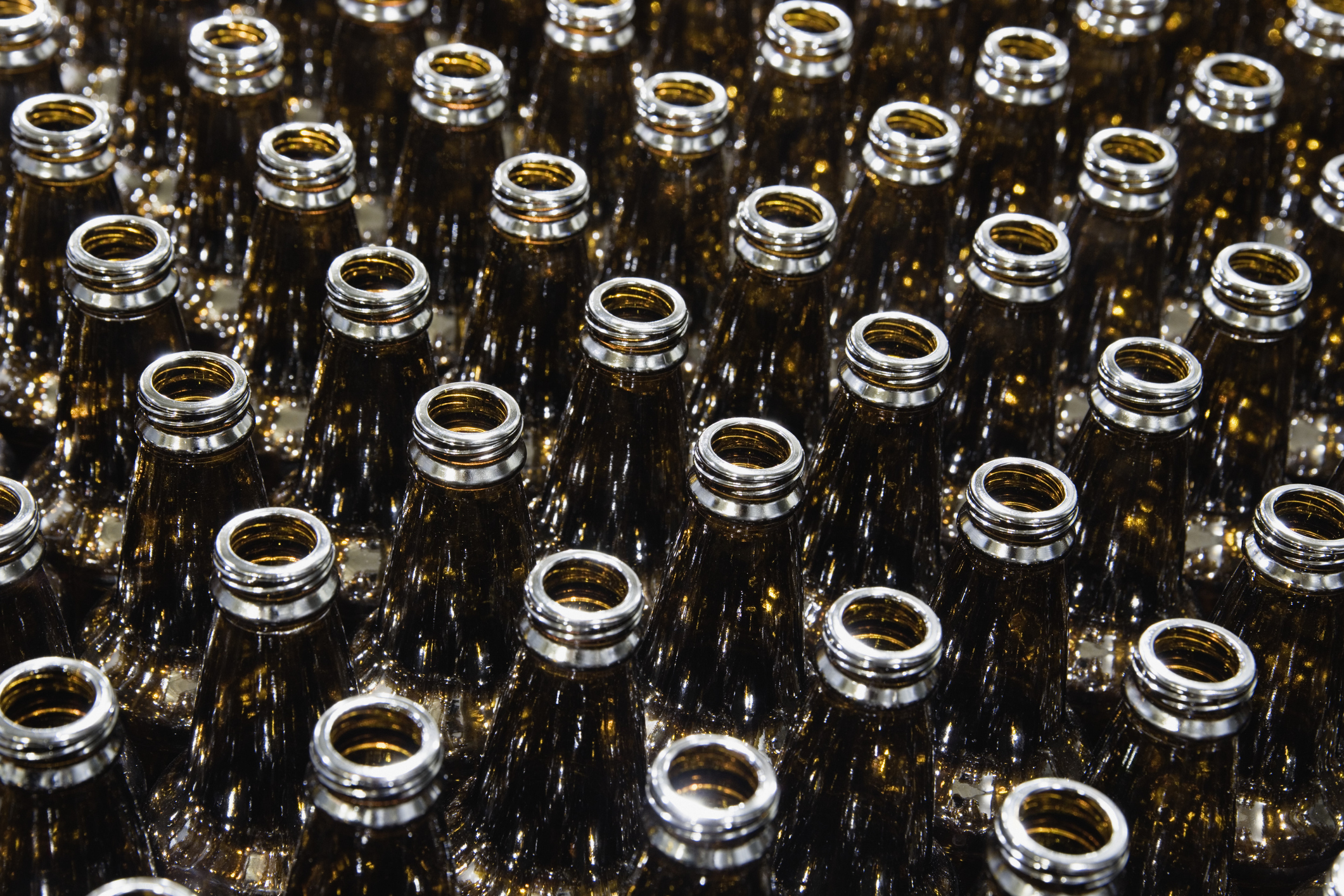Ohio Supreme Court Rules Providing Defective Ingredient to Manufacturer, Which is Integrated Into Final Product, is “Occurrence” Resulting in “Property Damage”

Cleveland, Ohio (April 6, 2022) - On March 23, 2022, the Ohio Supreme Court issued a decision in Motorists Mutual Insurance Company v Ironics, Inc., et al., Slip Opinion 2022-Ohio-84. The court ruled that an umbrella insurance policy provides liability coverage for claims against an insured for supplying a contaminated ingredient (in this case, tube scale) that was incorporated into a final product (namely, glass containers). The “your work,” “your product,” and “impaired product” exclusions did not apply.
Case Background
The insured, Ironics, Inc. (Ironics), buys and sells metal products, including a product known as “tube scale.” Tube scale can be used as a coloring agent in glass products. Owens-Brockway Glass Container, Inc. (Owens) manufactures glass containers. Owens purchased tube scale from Ironics to incorporate into Owens’ manufacturing process to make its bottles amber and brown. After using Ironics’ tube scale, Owens discovered chrome stones embedded in the final glass containers, which made the containers susceptible to breaking. Owens scrapped more than 1,850 tons of impacted containers. Ironics had purchased the tube scale in question from a third-party steel mill processor. Ironics learned, after the fact, that the processor accidently mixed the tube scale with chrome stones.
Owens submitted a claim to Ironics seeking more than $1 million in damages. Ironics sought insurance coverage under its commercial general liability policy (CGL) and umbrella policy with Motorists Mutual Insurance Company (Motorists). Motorists sought a declaratory judgment arguing that they had no duty to defend or provide coverage for Owens’ claims against Ironics. The trial court agreed with Motorists and denied Ironics’ coverage request. On appeal, Ohio’s Sixth District Court of Appeals ruled that the CGL policy did not cover the damages, but the umbrella policy did.
Motorists appealed to the Ohio Supreme Court with a single proposition of law: “The incorporation of a defective ingredient into an integrated product or system does not constitute damage to ‘other’ property for purpose of liability coverage under commercial general liability and umbrella policies.” Motorists presented two primary arguments: that Ironics’ providing of contaminated tube scale (1) did not cause “property damage” and (2) was not an “accident.”
Damage to Final Product (the Glass Containers) Was Other “Tangible Property” and Integrated-System Rule Did Not Apply
The umbrella policy defined “property damage” as “physical injury to or destruction of tangible property, including all resulting loss of use of that property.” Motorists argued that the term “tangible property” does not include the insured’s own property (the tube scale). Motorists argued that the tube scale was the defective and damaged property and asked the court to apply the “integrated-system rule,” a rule that provides that the “incorporation of a defective ingredient into an integrated product or system does not constitute damage to ‘other’ property for purpose of liability coverage.”
The Ohio Supreme Court rejected Motorist’s argument and relied solely on the umbrella policy’s language finding that (1) the impacted glass bottles were “tangible property” and (2) the tube scale caused physical injury to the containers. The court distinguished the glass bottles (the final product) and the tube scale (a coloring agent incorporated into the glass bottles):
“Multicomponent objects such as glass containers are ubiquitous and not identifiable as any particular component. A microchip, battery, or other component of a smart phone is not the equivalent of a smart phone itself. Owens’s glass containers are likewise property other than Ironics’s tube scale. While the property includes Ironics’s tube scale, it is the integration of the tube scale into Owens’s product that caused the damage—more than 1,850 tons of unusable glass containers.
***
Ultimately, we see no support for Motorists’s interpretation of ‘property damage.’ Nothing in the term itself or in the term’s definition in the policy indicates that damage to a multicomponent product is to be regarded as damage to the insured’s product. If that were what the parties intended, Motorists could have included language in its umbrella policy making that intention clear, but it did not do so.”
The court declined to apply the integrated-system rule (a doctrine applicable to the economic loss doctrine) to this insurance coverage.
Existence of an “Accident” and The Principle of Fortuity
The umbrella policy defined “occurrence” as “an accident, or a happening or event… which results in … ‘property damage’ neither expected nor intended from the standpoint of the insured.” Motorists argued that Ironics providing a faulty product was not an “accident” because it was not unexpected.
The court explained that the “the principle of fortuity” is “central to the notion of what constitutes insurance,” stating, “[t]he parties to an insurance agreement ‘in effect, wager against the occurrence or non-occurrence of a specified event; the carrier insures against a risk, not a certainty.’”
The court acknowledged that insurance policies “are not intended to insure ‘business risks’—risks that are the ‘normal, frequent, or predictable consequences of doing business, and which business management can and should control or manage.’” (Emphasis added). Instead, insurance policies insured “consequential risks that stem from the insured’s work, not the insured’s work itself.”
The Ohio Supreme Court agreed with Ironics that “defective work” and providing a defective nonconforming product are materially different, which is evidenced by the policy’s “your work” and “your product” exclusions. There was no evidence that Ironics was aware of the contaminated tube scale or controlled the process in which Owens used the tube scale to make glass containers.
The “Your Work,” “Your Product,” and “Impaired Property” Exclusions Did Not Apply
The Ohio Supreme Court’s opinion noted that the umbrella policy contained three exclusions, including no coverage for “your product,” “your work,” or “impaired property.” The court explained that none of the exceptions applied in this case.
The “your product” exclusion did not apply because glass containers (the damaged product) belonged to Owens, not Ironics. The “your work” exception did not apply because Ironics did no work for Owens, but simply supplied tube scale. Finally, the “impaired property” was defined in the policy as property that could be repaired or restored. Because the containers could not be restored, the exclusion did not apply, the court concluded.
The court also disagreed with Motorists’ contention that Ironics failed to meet the requirement that coverage is only offered for accidents. Citing recent Ohio Supreme Court opinions regarding faulty workmanship, Motorists argued that supplying faulty ingredients is not an accident covered by insurance, but a business risk for which the company is financially responsible. Faulty workmanship and faulty ingredients are not the same, the opinion stated. The court ruled there was no evidence that Ironics was aware of any contamination of the tube scale when it sold it to Owens and inclusion of the chrome stone was an accident.
Takeaways
The Ironics decision provides a comprehensive overview of Ohio’s view on the purpose and interpretation of insurance contracts and how Ohio will rely upon the broad purpose of insurance policies and the business risks at issue. The Ohio Supreme Court emphasized in Ironics that the policy language reigns supreme when deciding coverage disputes, and Ohio courts remain reluctant to apply common law principles to interpret common terms in insurance policies such as “occurrence” and “property loss.”
When determining liability coverage under a CGL or umbrella policy for providing a defective component or ingredient, facts related to the insured’s actions and knowledge is critical. An insured simply selling an ingredient (like Ironics) as opposed to manufacturing an ingredient, can impact the applicability of “your work” and “your product” exclusions. An insured’s knowledge and control over the creation of a defective or contaminated ingredient may also impact whether the claim arises from an “accident” and qualifies as an “occurrence.”
For more information on this decision, contact the author of this alert. Visit our Insurance Coverage Practice page for additional alerts in this area.
Author:
Daniel A. Leister, Partner
